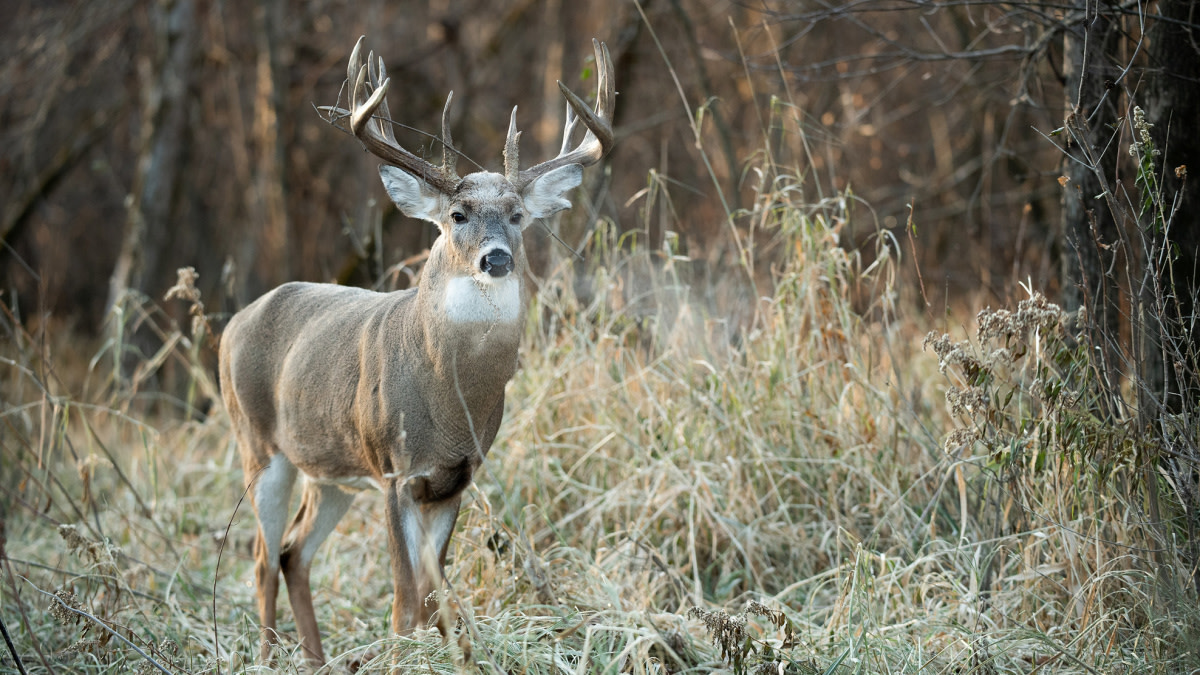
If you’re stuck in whitetail purgatory, take solace in the fact that you have a lot of company. Most hunters in any given season (or hell, any given decade) won’t kill a big buck. Many don’t really care, which is a great spot to be in. That means the hunt is about other things, whether it’s the social aspect, just communing with nature in a quiet place, putting meat in the freezer, or whatever.
What if you’re not in that spot though, and a big deer is important to you? And for whatever reason, you just can’t make it happen? Then you should acknowledge some of the potential reasons why and learn from them.
What is a Big Buck?
Dan Johnson is a diehard whitetail hunter who hosts the Nine Fingers Chronicles podcast. When asked the number-one reason why he thought most folks won’t kill a mature buck, he answered with a series of questions.
“What is a big buck?” Johnson asked. “Is it the biggest buck you’ve ever killed? Is it a score, or an age class? Is it a deer that is way beyond what your state or region is going to deliver?”
Johnson’s point is not one to be taken lightly. A 100-inch eight pointer on public land in New Jersey might be warrant a call to the taxidermist, while that buck on private ground in Iowa wouldn’t even spike a 12-year old’s heart rate. To kill a big buck, you’ve got to figure out your personal definition of what that is and decide whether it’s doable in your situation.
A general rule should be something that is attainable with enough effort. A deer that is rare, but possible, and could walk by you if you put the requisite amount of work into making it happen. If your standards are too out of whack with your situation, that’s a sure sign that you will not kill a big buck.
Effort In, Rewards Out
“I’ve interviewed literally hundreds of hunters from all over the country,” Johnson said, “and they are all grinders. They don’t have tons of other hobbies, they are hyper-focused on deer, and they have learned to love the work.”
Johnson’s view into the whitetail world is a relevant one, because of the amount of truly successful hunters’ brains he’s been able to pick. While those hunters come from varied hunting situations, they share commonalities that definitely contribute to consistent success on mature deer.
Without question, one of those is effort. Without a truly special spot to hunt, killing big bucks is commensurate to the work that is put in. This goes for off-season scouting, practice sessions, time on stand, and the pursuit as a whole. It’s easy to blame a lot of external factors for our lack of individual success, because the truth might sting. But if you’re not killing mature bucks, it might just boil down to a deficit in discipline and effort.
Experience
This probably seems dumb, but hear me out: I don’t believe there is a single thing you can buy that replaces time in the woods. I don’t think there is a piece of hunting content you can consume that can replace actually hunting and actually shooting deer. Knowing how to hang stands to not get busted, when to draw as a buck approaches, how to read habitat and terrain, and about a million other skills that feed into hunting success, only comes from one source.
You can get great ideas from talented hunters, and you can supplement some of these skills with technology. That all helps, but it’s not the boost to get you consistently across the finish line in first place. That comes from time in the woods scouting and hunting, period. You get bonus experience points if you expand your horizons and hunt new places, which offer unique puzzles to figure out.
The more time you dedicate to this stuff, the more the big bucks will give you your chance. And the more likely it’ll be that when they do give you your chance, you won’t blow it. The discipline and effort will help you encounter more deer, but the experience and woodsmanship that comes with it, will help you tie a bow around the whole thing.
Conclusion
If you’re blessed to live in Iowa and happen to have grandparents who own 2000 acres of prime ground, you probably don’t need much help with big bucks. If you’re not so lucky, you might. Exploring why you don’t consistently kill big-to-you bucks is a great exercise in getting over the hump. It might be as simple as recalibrating your standards, or it might involve fewer days spent fishing and a few more scouting. It might just be that you don’t have enough hours on stand to make the right decisions at the right times.
No matter what the reason is, there is a path to better results, which often starts with a little self-reflection and a new mental approach to the whole thing.
Feature image via Matt Hansen.




